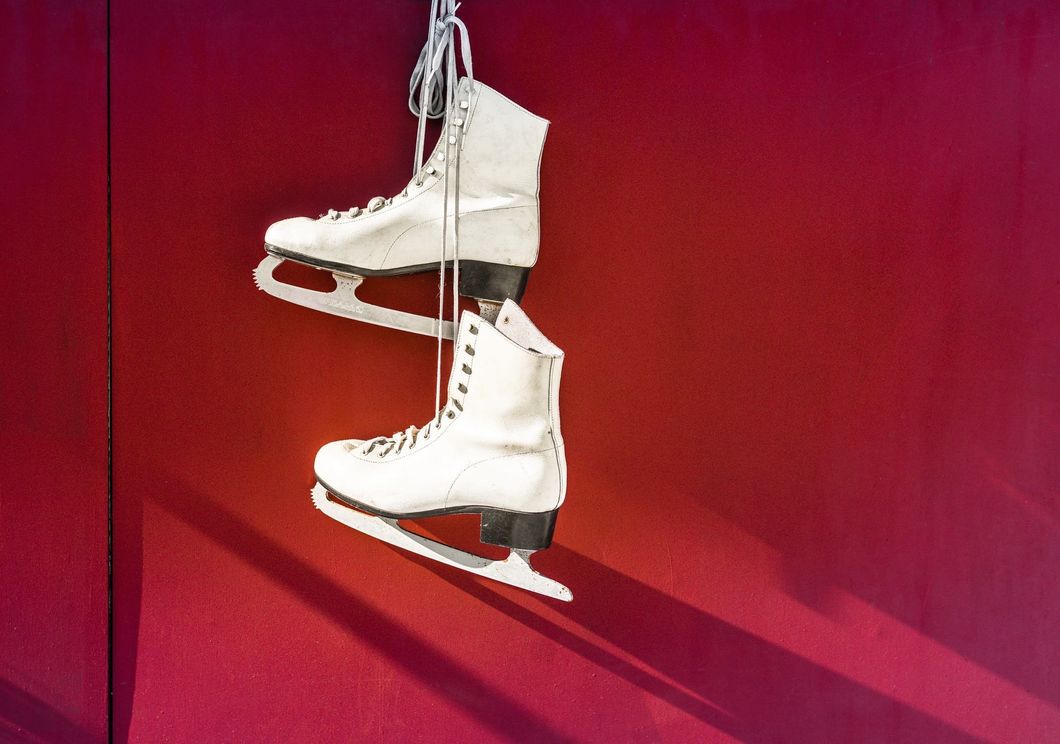During my time as a competitive figure skater, I've collected a bountiful harvest of anecdotes and abnormalities that still serve a vital role in my conscious mind. Here is a brief sampling of the nostalgic lifestyle.
In order to be somewhat successful in figure skating, one must practice, or "train" if you will. The practice sessions that were exclusive to serious figure skaters at my rink were called "freestyle" sessions. These would usually last from 45 minutes to an hour and a half. If you were really serious, you would do two freestyle sessions every other day. If you were homeschooled, you could do four or more every day.
And then there's freestyle etiquette: "Don't spin in corners." My sister lectured me once during a practice session. I had just finished a haircutter spin and was looking at the loops that had just been ingrained into the ice. My sister's face was pink with sweat beads lining across her forehead. She had dark rings encircling her eyes since the black eyeliner she applied early in the morning was smudged way beyond repair. "People jump in corners. Lutzes!" She then rolled her coffee-ground eyes, treating me like the true imbecile I was for not knowing that people take off for their lutz in corners of the rink and skated off. I was left to my own devices.
To perform a run-through of your program, you had to tie an orange ribbon around your waist in order to notify fellow skaters that you are the one practicing and that they must not get in your way. This symbol was usually ineffective; practice sessions were always a war zone with collisions - orange ribbon or not. If you had enough gumption, you would scream"excuse me!" right before cutting off a group of skaters and performing a required element. If you were a part of a pair skating or ice dance team, consider yourself the exception to freestyle etiquette, as a pairs team has double the momentum and double the power a single skater has. No one would have dared to get in your way, for the risk of dangerously colliding was maximized.
My skating coach was British and petite. She hated Obama, Rachael Flatt, and silence. She had a blond pixie cut and wore a large red coat with a fur-trimmed hood, making her even smaller in appearance. In the winter, she would carry a mini-heater onto the ice and plant it behind her while she gave instruction. When I did something wrong, she would call me knucklehead or Miss Mental Case. "When you do a spiral, make sure you look beautiful doing it!" she told me. "Would you want to shop at Kmart with their ugly, cheap decor or Macy's with their excellent window displays?" She stared at me incredulously. "...Macy's...?" I quickly looked up at her then back down, terrified of the verbal train that was quickly racing towards me.
All in all, my skating coach taught me several important lessons that I still apply to everyday endeavors. She also once advised me to purchase butt pads to cure my fear of falling on my jumping passes. In regards to health and wellness, she told me to never consume the icing on birthday cake and the fatty bits of steak. My life has never been the same ever since.
Looking back, I appreciate my competitive history in figure skating. I've adopted skills that most of my friends don't have. I also gained habits that are still stuck with me to this day. And best of all, my childhood and adolescence were spent on a frozen pond.



















